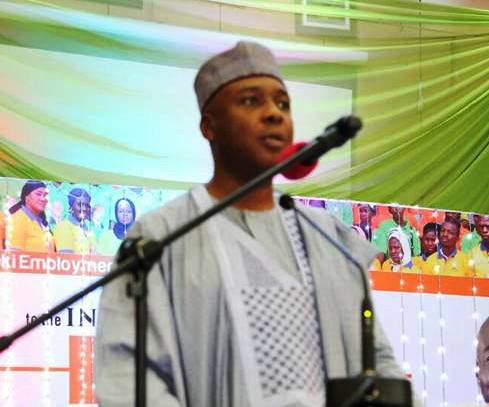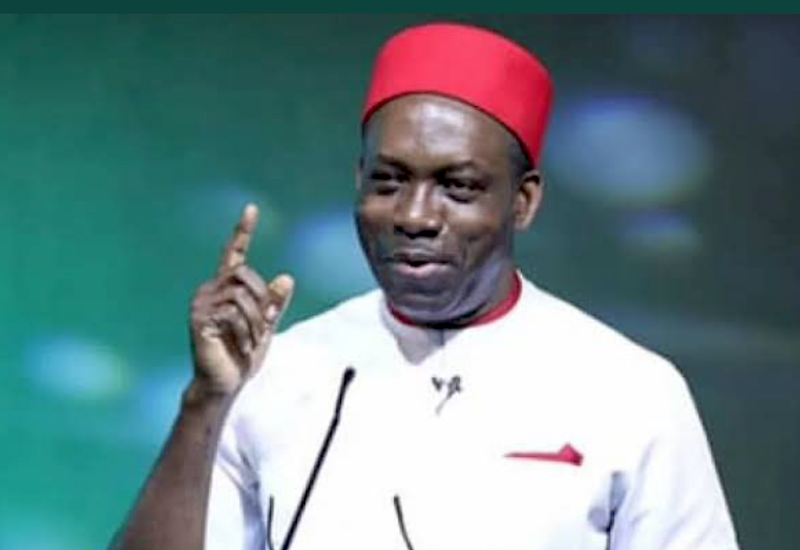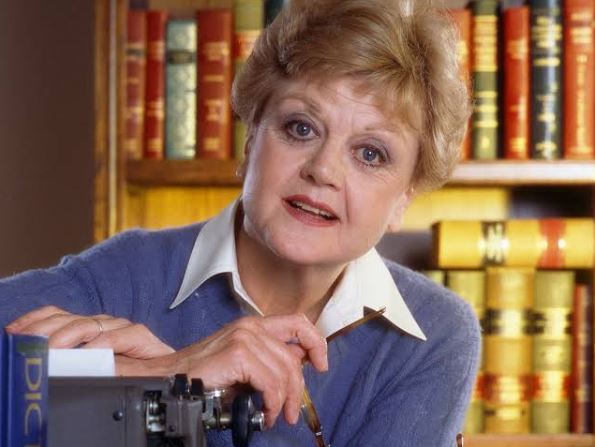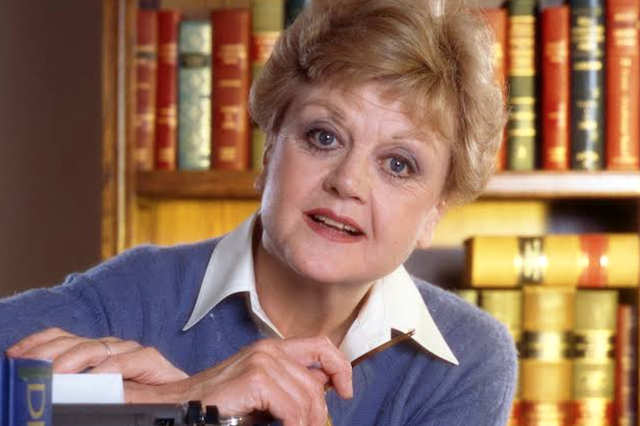By Mallam Bolaji Abdullahi
“Why should anybody come to Kwara?”
He asked me as I walked into his office sometimes in October or November of 2006.
“I don’t understand, sir,” I said.
Normally a workaholic, but he had been grinding it out really hard in the past couple of weeks; not just shuttling between Ilorin and Abuja, but to distant parts of the State. He would set out early and return late in the evening. He would still get back to the office and work for hours, clearing his desk.
The previous week, he had summoned me to his office around 11 o’clock in the night. He gestured for me to sit as he grabbed some tissues from a box and blew his nose into it. Before I could say anything, he reached for another wad of tissues and blew his nose again. He whispered a cough and sipped at his water. Ice cubes crackled gently and clinked at the glass that looked as frosty as his mien. I said it was not good for him, drinking such cold water in his condition.
“It doesn’t matter,” he said and sniffled lightly and coughed again.
“Well, you are the doctor…But sir, you need to give yourself a break. Is it because of the second term that you are killing yourself like this?”
He ignored the question. It wasn’t really a question though. For someone who appeared superhuman to so many people, these runny nose and intermittent coughs are the little reminders that even he could get tired and he could fall sick. He scribbled furiously on a file. The only light in the room came from the ceiling directly over his head. The rest of the room is wrapped in the delicate afterglow of that single light. Where I sat in the shadow across the table, I noticed that he had greyed distinctly at the temple. His hairline had also begun to recede. He now looked different from the dashing 41-year-old who became governor of our state three years earlier.
“I am sure we will win…we have done very well,” I said.
“And we still have Oloye,” I added, rather awkwardly.
He grunted. Then, he smiled. It was actually more of a smirk; the kind you give to someone who does not know what you know.
“You are smart, and all. But obviously, you still don’t understand politics,” he said. He then handed me some files that he wanted reviewed and returned in the morning. I wanted to ask him what he meant by his remark that I did not understand politics. But I did not. Instead, I picked up my files and sauntered out of his office, leaving him to his grumpy self.
Within a month of becoming governor, he had launched the Back-To-Farm, a programme meant to jumpstart his plan to make agriculture the mainstay of the State’s economy. It all ended in fiasco. Coming closely on the back of the elections, most of the people who postured as farmers simply took the cash and went home. Deeply disappointed with the outcome of this initiative, he began to doubt the assumptions behind some of his plans.
Nevertheless, by the first hundred days, he had laid the foundation for a housing estate, started and completed a major township road, convened the state’s first ever education summit, among a few other achievements. But the politicians did not appear impressed. Even in those early days, they had started to grumble that he was not doling out the money. They urged him to “throw away the calculator,” in reference to his growing reputation as a thrifty spender.
“Do you think our people want development or they just want patronage?” He would ask me. My argument was always that leadership is about doing what is necessary rather than what the people want. But for him, there was no easy answer. He was a young man with an eye to the future, brought to power by a political system that has been constructed and sustained by patronage. In the end, it appeared what he was looking for was a balance between performance that he knew would endear him to the people, and the patronage that the politicians that helped him to power wanted. It was unlikely that he would find a solution that satisfied everyone.
However, on this particular day, he appeared fully recovered and even looked excited.
“I mean, if you were not from Kwara State, why would you come here? What would bring you here?” He asked. I still wasn’t sure what he meant, or what answer he expected. But he answered the question himself.
“Maybe you wouldn’t come here, right?”
I nodded hesitantly, still not sure what he meant.
Now, this is what we need to do. We need to give people reasons to come to Kwara State,” he declared and went on to explain in broad details how he planned to make Kwara State the Central Hub for medical services, education and cargo.
“We are right in the middle of the country. Why should cargoes that are meant for the north, first land in Lagos if they could land in Kwara? Then do you know that the major problem with healthcare services in Nigeria is diagnosis? Why should people travel to India if they can come to Kwara and get the same quality of service? Yes, we have University of Ilorin, but we need our own university. Zaria is still the only place where pilots are trained in Nigeria. Why can’t we train pilots in Ilorin? Why can’t we set up a world class vocations training college to train technicians?”
As I listened to him, I began to see why he was excited because I was beginning to get excited myself. I thought what he had just presented to me was the manifesto for his second term. But I was astonished to find that within days, he had started to set up different committees to work on these ideas: the cargo terminal, the aviation college, the diagnostic centre, the vocation college, and the state university.
This was not the first time he would be having this burst of inspiration. Around October of 2003, I was with him in Makkah to perform the Umra of that year’s Ramadan. One day he asked me to follow him to Jeddah, the Saudi Arabia’s beautiful port city with its wide roads lined by dwarf luxuriant palm trees.
“If they can make a desert city so green, why can’t we do the same in Ilorin?” He asked. Then I realised that this was why he brought me to Jeddah. He had seen this before and had imagined it for his own capital city.
We returned home and launched the Clean and Green and recruited an army of men and women to clean and sweep up the city. At the time, Ilorin metropolis was a filthy place. Within weeks, the type of palm trees that we saw in Jeddah began to emerge on road medians in Ilorin. In no time, a new culture began to emerge. People who threw litters onto the streets were rebuked by onlookers and made to pick up their rubbish. We soon began to boast of having the cleanest capital city in Nigeria.
However, what was not immediately clear to everyone at the time was that Clean and Green was not just an environmental sanitation programme. It was an initiative primarily targeted at subverting the established order of political patronage. In numerical terms, the Saraki political system was built largely around women. Oloye therefore did everything to keep the women happy. Every one of his lieutenants knew that you could not do worse than give the women reasons to complain about you. Yet, the growing restlessness about lack of patronage was coming mostly from this powerful constituency of women who moaned persistently that the new governor was not taking care of them.
Clean and Green hired the women in their thousands. But this was not what they wanted. As they saw it, supporting Oloye and ensuring that he won elections was
enough occupation for which they deserved to be paid. Now, asking them to sweep the streets was beyond insolence. But the young governor was not going to back down. He also ensured that whoever got hired turned up for work by engaging a private company to manage the programme and paid them only through this company.
Perhaps, he could afford to stand his ground where other governors would have buckled because he was Oloye’s son. Nevertheless, with this intransigence, he was able to create a new level of consciousness among the women who, having realised that he was not going to budge now began to fall over themselves to get recruited into the scheme. However, I doubt that even he would have envisaged that these women would even go a step further by organising themselves into cooperative societies. They contributed a part of their salaries as capital for small businesses that they ran alongside their cleaning jobs, which normally ended in the mornings.
This was also the time that President Olusegun Obasanjo was announcing different reforms in the nation’s governance systems. The governor ensured we kept in steps with most of the Federal initiatives. When the Federal Government set up the Bureau of Public Procurement or the Due Process office, he followed suit by setting up the Price Intelligence Unit to make the State government procurement process more efficient and cost-effective. He also set up the Budget Monitoring and Implementation Committee to ensure that government got value for its spending and got things done.
At the time that he was talking to me about making Kwara State the hubs for many things, the elections were only five or six months down the line. Rolling out these initiatives now, it was obvious he was not contemplating a defeat. Yet when the campaigns started, I was rather surprised that none of these ideas even got a mention. Perhaps, even more crucially none of the achievements we had recorded in almost four years was made the subjects of the campaign.
We had launched the Clean & Green and the Malaria-Free Kwara. With the Zimbabwe farmers’ project, we had put our state on the world map and attracted national and global attentions to one of the boldest commercial agriculture initiatives in the country. We had opened up Ilorin airport and facilitated regular flights into the state capital, which also served travellers in neighbouring states. We had also fixed some important roads and completed a housing estate for middle income earners. We were also the first state to submit ourselves to a Fitch rating and returned with an impressive AA-(minus) for National Long-term rating and B+ for public finance transparency.
Yet, when the campaign started, it was clear that the governor did not think that these achievements would be sufficient reasons for people to vote for him. Instead,
the campaign was premised on the personal benefits that had gone to individuals and groups since we came into office and the promise of even greater benefits ahead if they supported us to win the election. The campaign slogan was, “Oun ti oba se looje.”
“You campaign in poetry and govern in prose,” was a quote attributed to former New York Governor, Mario Cuomo. Perhaps, this was what he was doing. But for me, as I watched my boss dance on stage and shout himself hoarse with promise of “eating”, I began to think that the contest between patronage and performance had been settled, and patronage was the clear winner.
He had worked really hard. He had recorded some very important achievements in his first term and he had great plans for the state in his second term. But these were absolutely at his discretion. The system did not demand it. The people did not really demand it.
Shortly before the election, I commissioned a survey among students of tertiary institutions in the State. They were asked if they would vote for Bukola Saraki for second term. They were also asked to give only one reason for their answer. I was astonished to find that while an unsurprising number of them responded that they would vote for him again, only a few could give any reason for their choice. Majority, especially the female respondents said they would vote for him because he was good-looking, or because, “he looks like a governor”.
What this meant was that he could have won the election without doing any of those heavy lifting work that he did. He could easily have sat back, enjoyed himself and ride back to power on the charm of his father’s name and political influence. But he did not. I once asked him what the Saraki name means to him. He said he has carried the weight of expectations that goes with that name all his life, but it is also a check that he does not like to cash. “I forget my surname, and fight for everything. That’s what I do,” he said.
As a politician and a political strategist, everyone knows that you can only underestimate Bukola Saraki at your own peril. But as a technocrat, not enough is known about him. Yet, if technocrats are those who think through problems and find solutions that truly work, he would easily rank among the very best. What he does better than most politicians and most technocrats, is that he has mastered the art of creating a balance between hard-nosed politics, and result-oriented governance. He understands, more than most, that politics is at the heart of getting things done in government, and that brilliant ideas would remain just ideas, until you are able to play the politics of it. He repeatedly demonstrated that politics does not have to be an encumbrance to good governance, but can actually be its prime facilitator.
As he clocks 60 today, I celebrate this great technocrat called politician, President of the 8th Senate, Waziri of Ilorin and the Commander Order of the Niger, CON, Dr. Abubakar Bukola Saraki.
Mallam Bolaji Abdullahi, former Minister of Youth and Culture









